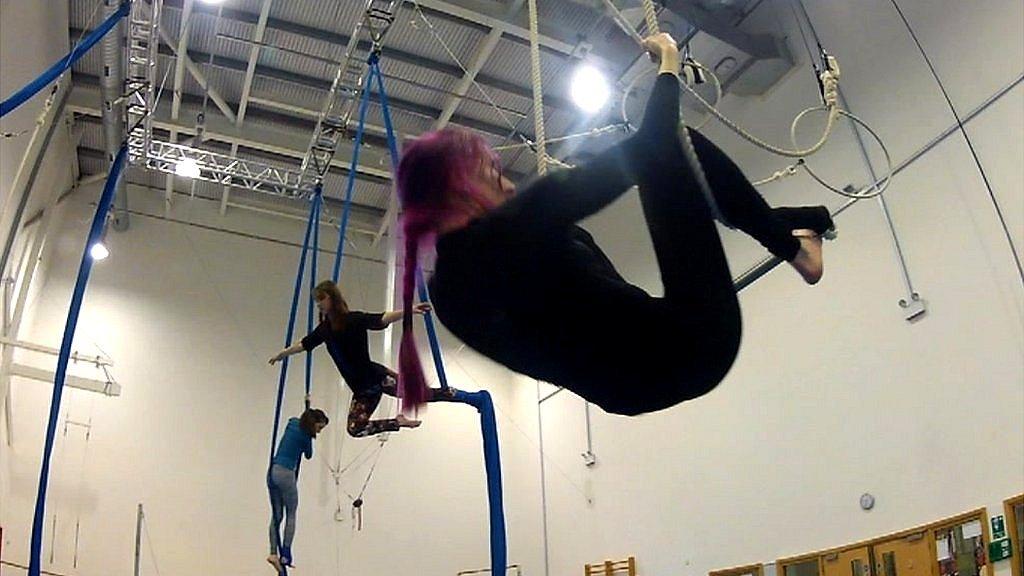Olympic legacy of Essex club inspires new generation of gymnasts
- Published
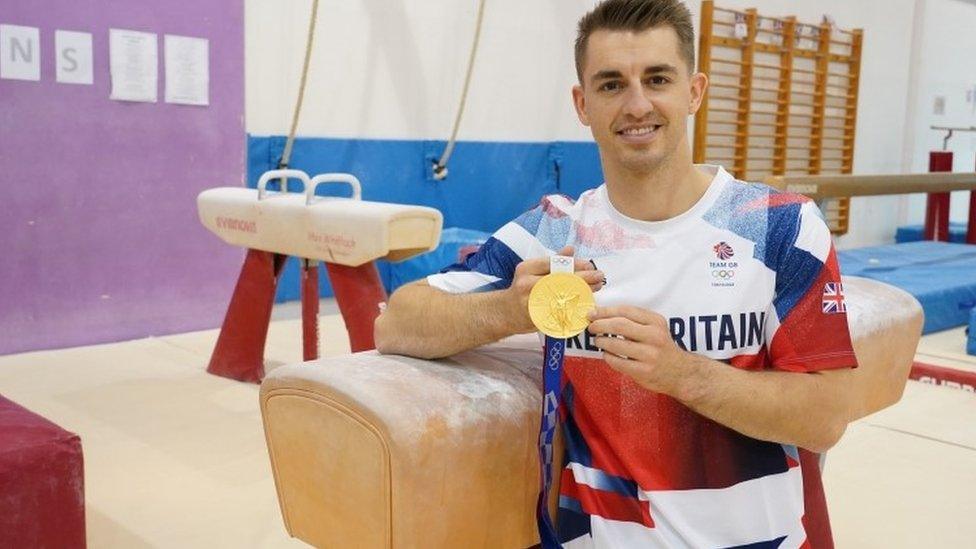
Max Whitlock, who trained at the the South Essex Gymnastics Club, Basildon, which was built in a sports village created for London 2012 legacy
Ten years on from the London 2012 Olympics, its legacy has inspired a new generation of gymnasts training in Essex.
After the 2005 announcement, external that London would host the games again, legacy became a buzzword.
Team GB won a then-record haul of 185 medals at the London 2012 Olympics and Paralympics.
But it also saw investment in an Essex gymnastics club where future medal winner Max Whitlock trained.

Essex gymnast Courtney Tulloch said he was inspired by the 2012 Olympics
Success for British gymnasts at the Olympics, external saw local clubs' phones ringing off the hook with parents wanting to be like Louis Smith from Peterborough and Max Whitlock, who is from Hemel Hempstead in Hertfordshire.
The South Essex Gymnastics Club in Basildon, where Whitlock trains, was built in a sports village created as part of the London 2012 legacy project... and they were ready for the Max Factor.
Club coach Ross Falsetta said: "I think with the whole run up, it built an incredible hype and excitement around sport in general.
"I know from gymnastics point of view that having a home games was an exciting and game-changing event for us."
He said that the club already had gymnasts such as Whitlock and so was in a "very good position to capitalise on that [Olympic enthusiasm] and feed off the energy".
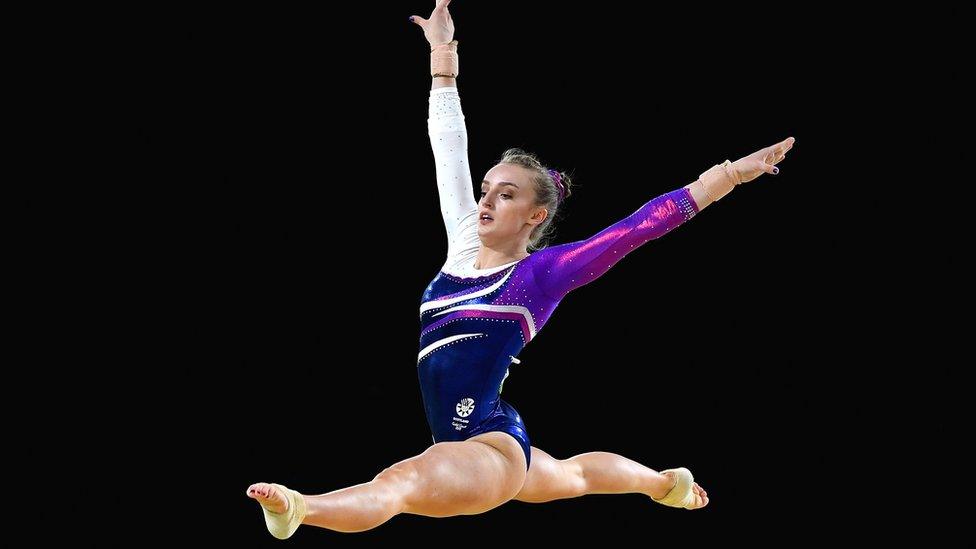
Shannon Archer is training at the Basildon centre in preparation for this summer's Commonwealth Games
Shannon Archer is training at the club for the Commonwealth Games in Birmingham which start on 28 July.
"Quite a lot of Great Britain athletes did really well in 2012 They got medals. There was a buzz about the fact it was in London," she said.
"The fact that we started to get medals on the world stage meant I thought 'if they can do it, there's no reason I couldn't do it too'."
Medal-hope Courtney Tulloch, also at the club, said: "The Olympics changed it completely for me. I'd love watching it on TV but seeing it in your own country - I loved every minute of it."
Pre-pandemic, physical activity levels were at an all-time high after 2012, but Covid cut them down again.
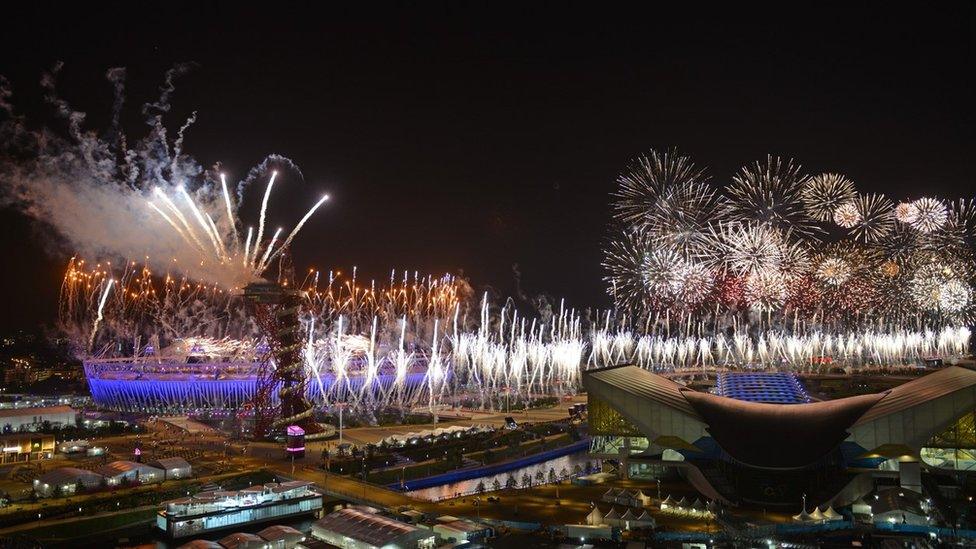
Team GB won 185 medals at the London 2012 Olympic and Paralympic games
Sport England said there were recovering, but rates for young adults were still well below pre-pandemic levels.
Active Essex, the sports partnership, was set up because to improve fitness levels.
Jason Fergus, its director, said: "We're here to inspire people to take part in sport and physical activities.
"If it wasn't for the games I don't think we'd be doing the great stuff we and our partners have been doing across Essex."
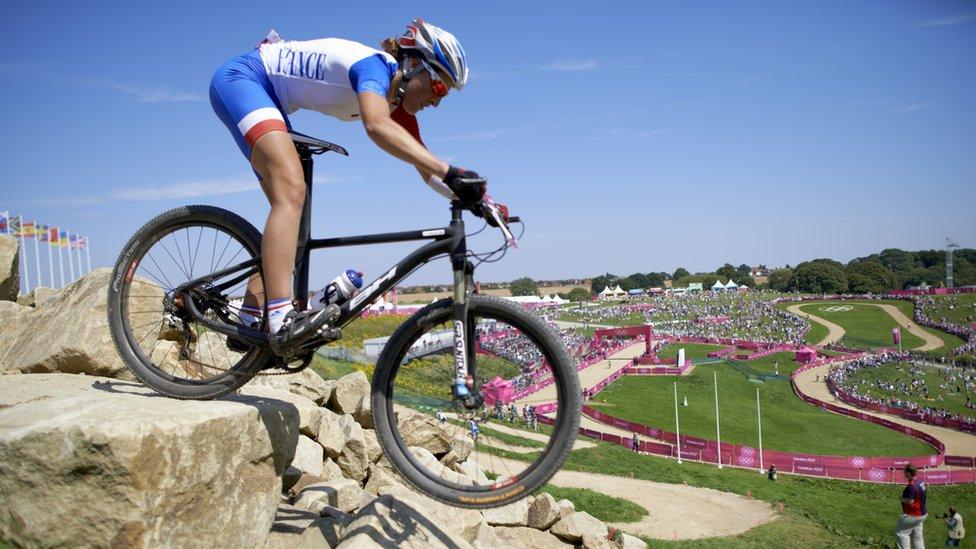
The Hadleigh Mountain Biking course was built for the 2012 Olympics
Essex also benefited from the Hadleigh Mountain Biking track which was used in London 2012 - which is still used for big events by club members, and, crucially, by members of the public who can experience what it's like to ride an Olympic course.
During London 2012, Essex next door was the back garden of the Games, and 10 years on it is very much in bloom.
Politics East airs on BBC One in the East on Sunday, 17 July at 10:00 BST and can be viewed on the BBC iPlayer afterwards.

Find BBC News: East of England on Facebook, external, Instagram, external and Twitter, external. If you have a story suggestion email eastofenglandnews@bbc.co.uk, external
- Published15 March 2022
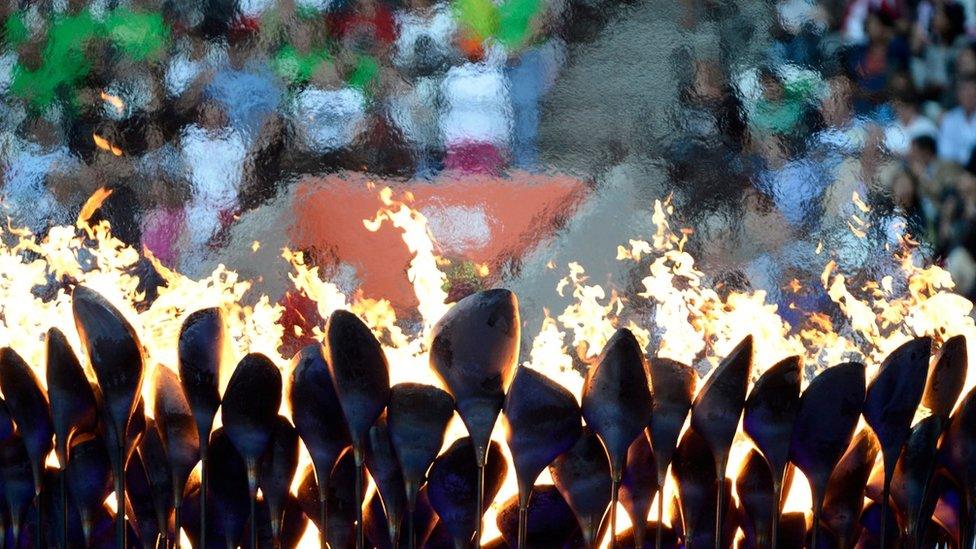
- Attribution
- Published24 October 2021
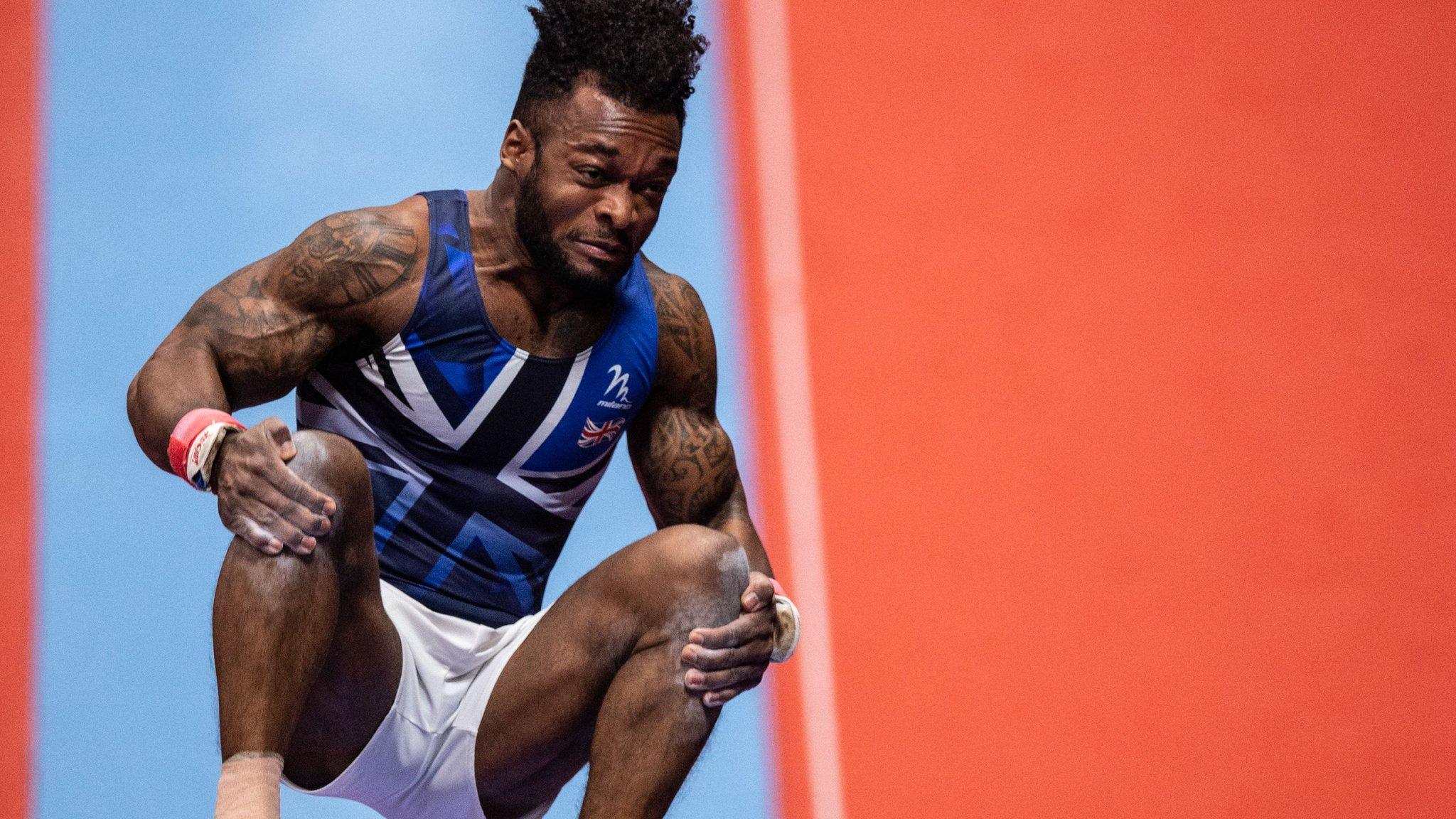
- Attribution
- Published1 August 2021
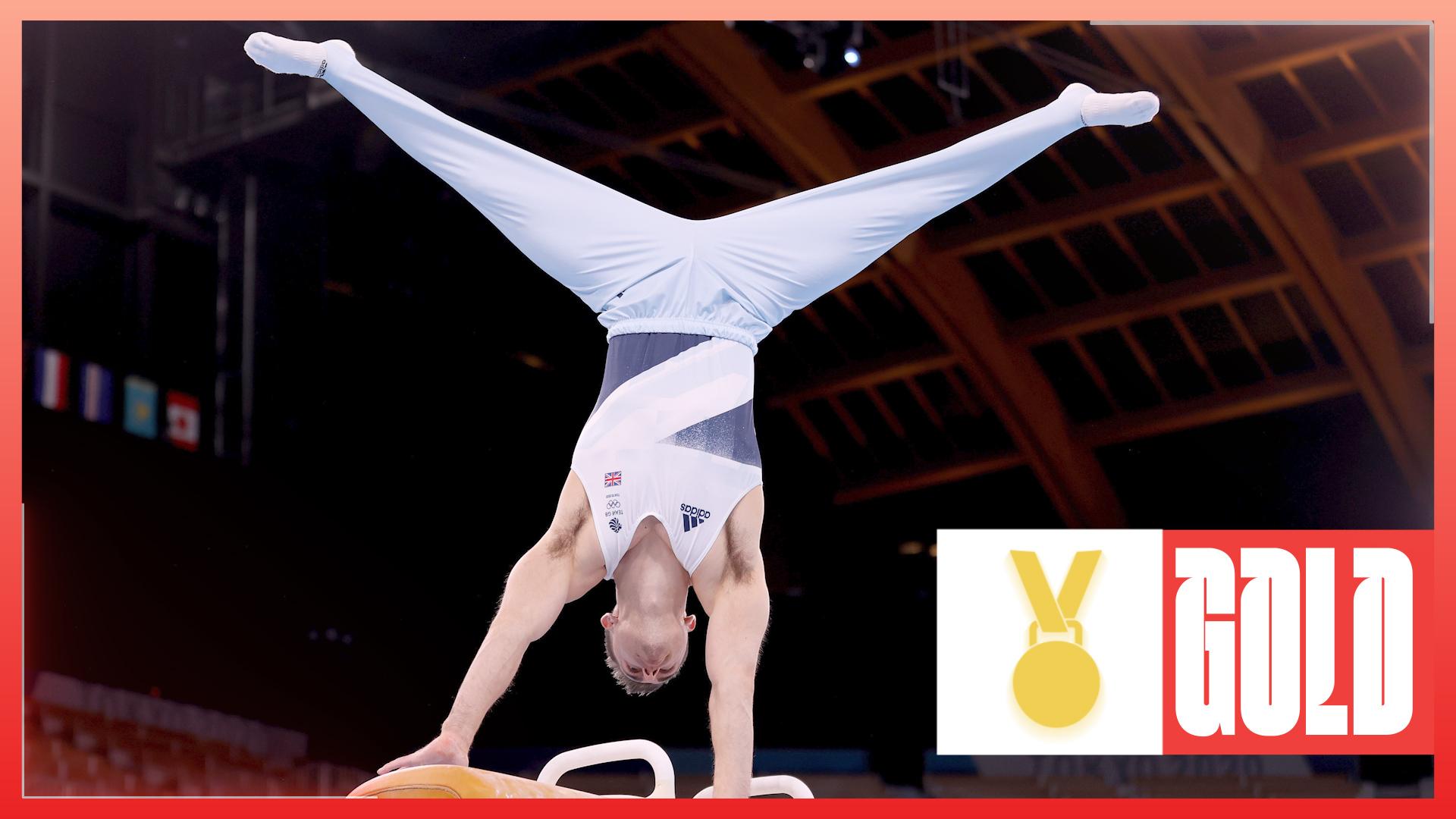
- Published27 August 2016
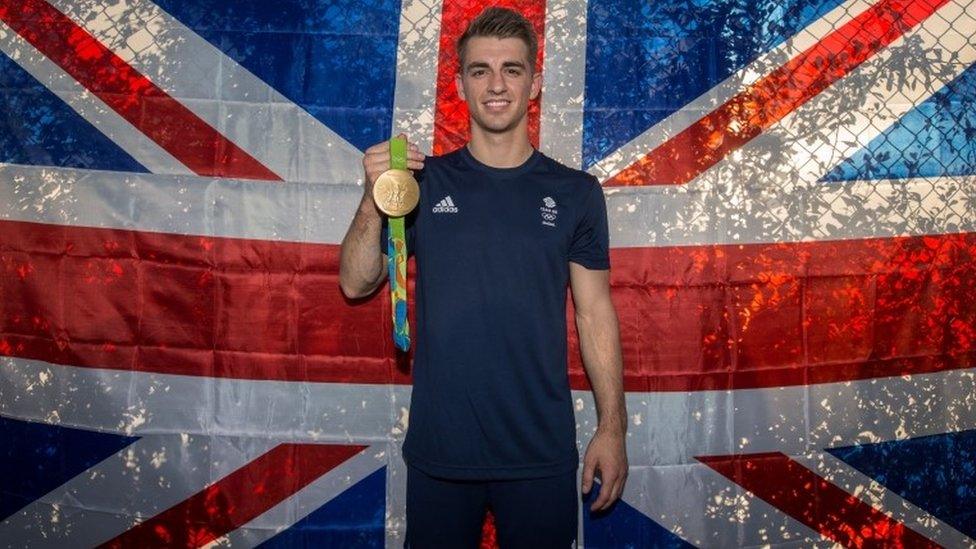
- Published26 August 2016
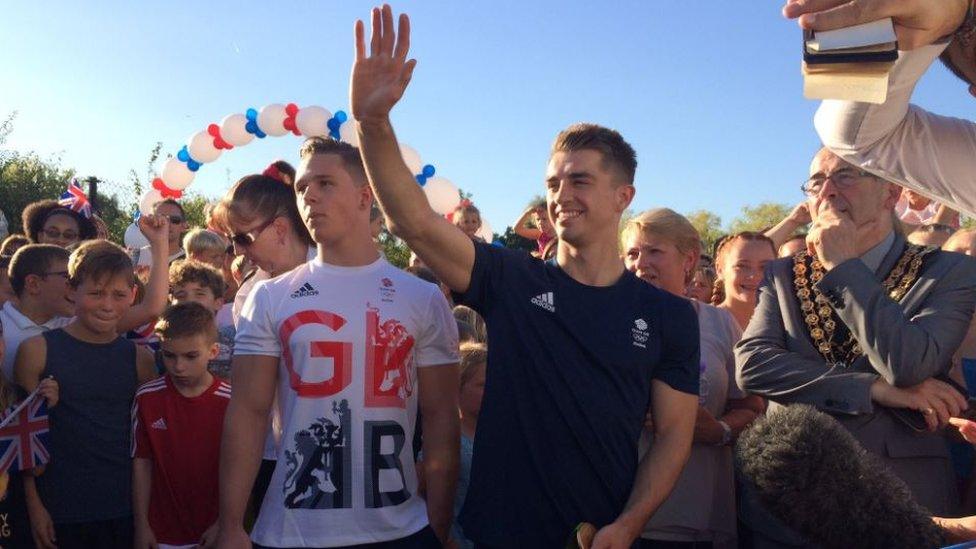
- Attribution
- Published25 March 2016
